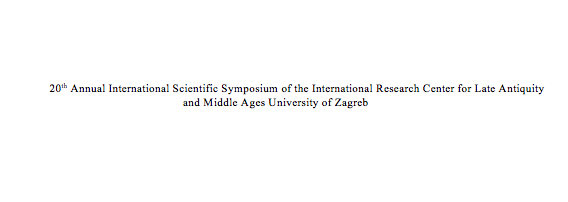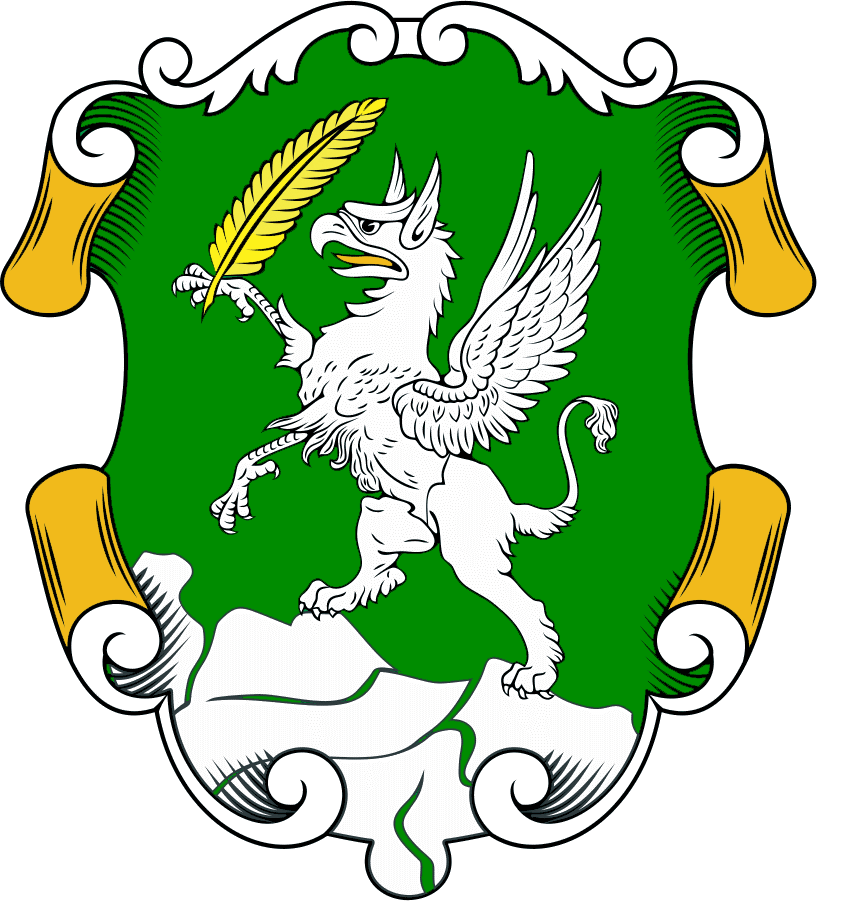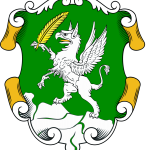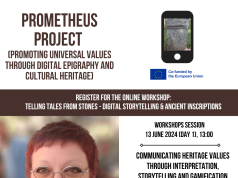
Dear Colleague,
International Research Center for Late Antiquity and the Middle Ages, University of Zagreb is organizing its 20th Annual Scientific Symposium. The Symposium will take place in the town of Poreč, Croatia, from 2nd to 6th of October 2013. To enable all colleagues who intend to celebrate the jubilee with us, and expecting a large number of participants, the topic of this year’s meeting is pretty vast, with a number of sections:
Late Antiquity and the Middle Ages in Europe, 20 Years of Research
- Duration: 2. – 6. 10. 2013.
- Submission: miljenko.jurkovic@ffzg.hr
During the last two decades through various scientific projects and publications new patterns and new guidelines for future research of the phenomena of the transformation of Roman world and society as well as those of the longue durée in Late Antique and medieval art and architecture were set. In that context the important place is held by the IRC for Late Antiquity and the Middle Ages of the University of Zagreb, that for the last 20 years, primarily through the annual IRCLAMA Symposia, gathers European scholars and researchers with the common interest in art and architecture of the first millennium and of wider social and cultural trends and changes of Late Antiquity and the middle ages.
Throughout various topics of the symposia, where fruitful interaction between archaeologists, historians, art historians and other specialists is always present, important questions were raised and significant common, trans-regional features and artistic connections were recognized. The results of the IRCLAMA projects and symposia, based primarily on interdisciplinary approach, contributed greatly to the change of the overall picture of the religious art and architecture of the first millennium and its re-evaluation and placement in a broader context.
In order to successfully continue and strengthen the cooperation between scientists and researchers from different European countries and of different field of work, as well as to enhance already established projects and to start possible new ones, IRC for Late Antiquity and the Middle Ages recognized the importance of organizing a meeting where new ideas and experiences in studies of the Late Antique and medieval art and society will be exchanged. Thus, the main aim of the symposium is to bring together scholars working in art and architectural history, history, archaeology and other related disciplines to consider specific questions associated with important phenomena of the creation and transformation of Late Antique and Medieval urban and rural landscape, tradition and innovation in Late Antique and medieval art and architecture, as well as those of the exchange and transmitting ideas between different cultures, spaces and times of the Late Antique and Medieval Europe and Mediterranean. The main task of this year’s symposium is to identify potential problems arising from the previous research of the mentioned subjects and to recognize new approaches and research methods. The need to establish certain principles on which future studies will take place is also imposed.
Since the annual symposia of the IRC for Late Antiquity and the Middle Ages are interdisciplinary, and since this year’s topic offers a wide range of approaches, participation of scientists from different fields is expected.
Discussed topic includes different thematic sessions with selected themes of special (but not limited) interest:
REDEFINING URBAN SPACE IN LATE ANTIQUITY AND THE MIDDLE AGES
Innovation and Architectural interpolation in Late Antique Urban Planning
Transforming the old and/or creating the new – emergence of the medieval city
TRADITION AND INNOVATION IN LATE ANTIQUE AND MEDIEVAL RESIDENTIAL ARCHITECTURE
Tradition and Innovation in the residential architecture of late antiquity
Creation of the medieval palace architecture
TRANSFORMING RURAL LANDSCAPE – CONTINUITY AND/OR CHANGE IN RURAL SETTLEMENT ORGANIZATION
Rural administrative centers and agro-processing points
The architecture of peasants – new perspectives on the Late Antique and medieval rural landscape
IMAGES OF CHRISTIANITY AND THE (RE) MAKING OF CHRISTIAN IDENTITY
Christians and non-Christians – artistic interaction and confrontation<
Remaking Christian identity – Schisms, Church reforms and the images of Christianity in the Middle Ages
THE (R) EVOLUTION IN THE CHRISTIAN RELIGIOUS ACHITECTIURE AND LITURGY
Cult space and performing cults in early Christian society
Form and function in medieval church architecture – the changes of the liturgical space from late antiquity till the gothic period
ARTISTIC TRANSFERS IN THE MIDDLE AGES – TRAVELLING SCULPTORS AND PAINTERS IN THE MEDITERRANEAN EUROPE
1. Please express as soon as possible your wish to participate to the colloquium.
2. We kindly ask You to send the exact title of your proposed lecture and the abstract (of no more than 1800 characters) in English, French, German, Italian or Spanish, till the 1st of May to the following address: miljenko.jurkovic@ffzg.hr. Estimated time for all lectures is 30 minutes.
3. In the next mail we will inform you of the lodging possibilities in Poreč. There will be various possibilities: 4 star hotel (around 60 Euros participation), 3 star hotel (around 40 euros participation), 2 star hotel (around 20 euros participation).
4. The isnscription fee is 90 Euros. It covers all the materials of the colloquium, the excursion with lunch, the great banquet for 20 years of IRCLAMA, the last issue of Hortus atrium medievalium or another publication of the center.
With kind regards,
Organizing committee:
Miljenko Jurković (IRC for Late Antiquity and the Middle Ages; University of Zagreb)
Igor Fisković (University of Zagreb; Croatian Academy of Sciences and Arts)
Xavier Barral i Altet (Univerité de Rennes II, Universita Ca Foscari, Venice)
Alain Erlande Brandenburg (Musée National de la Renaissance, Ecole pratique des hautes études, Paris)
Gian Pietro Brogiolo (Università degli studi di Padova)
Jean Pierre Caillet (Université Paris X Ouest – Nanterre)
Source: arheologija.hr





